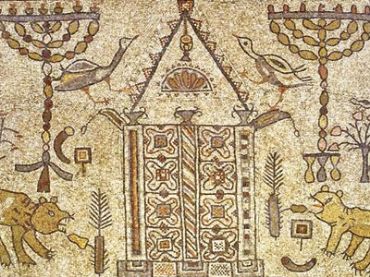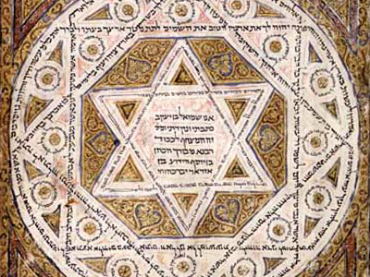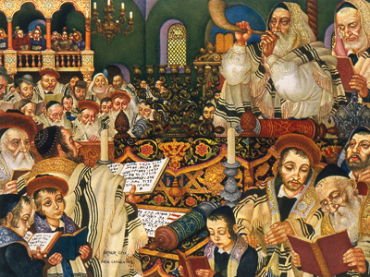Jewish Studies
Jewish Studies is an interdisciplinary field studying Jews and Judaism in all of their geographical, cultural, social, economic, historical, political, religious, and linguistic contexts, from Late Antiquity through the modern period. The Judaism in Context series features monographs and edited collections that traverse the wide landscape of Jewish Studies.
Viajeros hispánicos en Estambul, de la cuestión de Oriente al reencuentro con los sefardíes (1784-19
Series: Les Cahiers du Bosphore 3
ISBN: 978-1-61719-935-6
A collection of papers on the discovery of Istanbul and the Sephardic Jews by Spanish travellers in the 19th century.
$157.00
The Jewish Community of Istanbul in the Nineteenth Century
Social, Legal and Administrative Transformations
By Ilan Karmi
ISBN: 978-1-61719-939-4
A study of the Jewish community in Istanbul and how it was transformed by the Ottoman reform movement of the nineteenth century.
$125.00
Catalogus codicum Hebraeorum
Bibliothecae Academiae Lugduno-Bataviae
ISBN: 978-1-61143-468-2
A complete and detailed description of the Hebrew manuscript collection of the University of Leyden, primarily the collections of the distinguished Levin Warner, Dutch ambassador to the Ottoman Empire.
$200.00
A Dictionary of the Targumim
The Talmud Babli and Yerushalmi and the Midrashic Literature
Compiled by Marcus Jastrow
ISBN: 978-1-61143-498-9
A splendid dictionary intended for the early Rabbinic commentaries and exegesis of the Hebrew Testament: the Gemara, the Mishnah, and the Talmud.
$511.00
Fortschritt und Vollendung bei Philo von Alexandrien
Eine Studie zur Geschichte der Frömmigkeit
Series: Kiraz Jewish Studies Archive 17
ISBN: 978-1-61143-520-7
This work details the life of Alexandrian Jewish philosopher Philo and his guidance on the conduct of the spiritual life, with an introduction surveying the life and works of Philo and the critical writing on his philosophy.
$118.00
Lily Montagu’s Shekhinah
By Luke Devine
Series: Judaism in Context 11
ISBN: 978-1-61143-684-6
Lily Montagu’s Shekhinah outlines Lily Montagu’s theological writing, particularly her appropriation of the feminine aspect of the divine presence, Shekhinah, and provides a much needed corrective to the androcentric Anglo-Jewish historiography that has ignored, marginalized, and completely erased the founder of the Liberal Jewish movement in England. Luke Devine’s book is vital reading for students of Anglo-Jewry, First-Wave feminism, Jewish feminism, Liberal Judaism, and Jewish mysticism.
$169.00
Further Biblical Hebrew (paperback)
Explanations and Exercises
Series: Gorgias Handbooks 11
ISBN: 978-1-61143-662-4
This coursebook is designed for students who have completed at least one year of college study in Biblical Hebrew. It helps students make the transition from the basic grammar books to use of the comprehensive reference grammars and to more advanced analysis of Biblical Hebrew. Constant reference is made to recent works of grammar, and also to the grammatical comments of the medieval Jewish exegetes. A central theme is that medieval and modern Biblical Hebrew scholars have reached essentially similar conclusions, even if the medievals lacked modern terminology.
$117.00
Second-Wave Jewish Feminism, 1971-1991
Foundational Theology and Sacral Discourse
By Luke Devine
ISBN: 978-1-4632-0084-8
This book is the definitive critical analysis of the Jewish feminist theological project in the United States, its principal theologians and its foundational, embryonic, and more elaborated sacral discursive. The monograph critically examines each of the diverse theologians, their varied perspectives, and individual contributions, and asks will a prescriptive Jewish feminist theology ever be a reality?
$160.00
English Grammar Guide for Language Students
Especially students of Biblical Hebrew, New Testament Greek, Latin, and related modern languages
By Peter Burton
Series: Gorgias Handbooks 27
ISBN: 978-1-61143-864-2
Too many incoming students are fluent in English but unable to discuss the language grammatically. Introductory language courses and textbooks often assume a proficiency and familiarity with grammatical terms that is not possessed by the students. This guide delivers an understanding of English grammar starting from simple concepts and presupposing no background or vocabulary. This book is designed as a textbook and a reference for students beginning a New Testament Greek, Biblical Hebrew, Aramaic or Latin course.
$85.00
The Travels of Rabbi Petachia of Ratisbon
Who, in the Latter End of the Twelfth Century visited Poland, Russia, Little Tartary, the Crimea, Armenia, Assyria, Syria, the Holy Land, and Greece.
Edited and Translated by Abraham Benisch; In Collaboration With William F. Ainsworth; By Judah b. Samuel he-Hasid
Series: Kiraz Historic Travels Archive 31
ISBN: 978-1-61143-911-3
This text narrates the travels of Rabbi Petachia, a medieval rabbi from Regensburg, Germany, who set out to visit Baghdad, Susa, and Palestine.
$153.00
Grammar of Palestinian Jewish Aramaic
Series: Analecta Gorgiana 987
ISBN: 978-1-61143-928-1
A handy grammar of the Aramaic of the Targum, the Talmud, the Midrashim and the Aramaic passages of the New Testament, with notes on where the older dialect of Ezra and Daniel differs.
$53.00
Manchester Journal of Jewish Studies (2010)
Editors Daniel R. Langton & Renate Smithuis
ISBN: 978-1-4632-0055-8
Melilah is an interdisciplinary peer-review journal concerned with Jewish law, history, literature, religion, culture and thought in the ancient, medieval and modern eras. Contributors (2010) include Simon Mayers, Z. Yaakov Wise, Ed Kessler, Hyam Maccoby, and Glenda Abramson.
$57.00
The Unbearable Flaming Fire
Edited by Mishael M. Caspi & John T. Greene
Series: Biblical Intersections 10
ISBN: 978-1-4632-0160-9
This anthology on Eve brings together an international group of scholars to discuss how this character has been interpreted by Judaism, Christianity and Islam. In a time when the history of women is being reassessed, it is natural that women look to the paradigmatic female figure. This treatment of Eve covers her wide range of roles as mother of our race, victim, stooge, wife, companion, independent thinker, and “helper”. A venerated figure by many modern feminists and a denigrated figure by those who blame her for original sin, no reader will leave these pages indifferent to the first woman.
$129.00
Rhapsody in Blue
The Origin of God's Footstool in the Aramaic Targumim and Midrashic Tradition
Series: Analecta Gorgiana 1059
ISBN: 978-1-4632-0106-7
Three interpretative trends address the vision at the ratification of the Sinai covenant in Exod. 24:10. Traditions relate whether God or a throne was seen, as well as the consequences for this vision for the leaders and history of the Israelites.
$35.00
Biblical Text in Rabbinic Context
The Book of Chronicles in the Mishnah, Talmud and Midrash
By Isaac Kalimi
Series: Analecta Gorgiana 1060
ISBN: 978-1-4632-0107-4
This study investigates how the Rabbis handled the Book of Chronicles, highlighting issues including intermarriage. While genealogical lists contain intermarriage in Chronicles, Ezra-Nehemiah is generally opposed. Ezra did compose some of the lists and intermarriage was acceptable only under certain conditions.
$35.00
Haredi Male Bodies in the Public Sphere
Negotiating with the Religious Text and Secular Israeli Men
By Yohai Hakak
Series: Analecta Gorgiana 1074
ISBN: 978-1-4632-0121-0
This paper explores the Israeli Haredi community’s social construction of the male body.
$38.00
In Search of the Seventy "Weeks" of Daniel 9
By George Athas
Series: Analecta Gorgiana 1077
ISBN: 978-1-4632-0124-1
Athas challenges the past assumptions by Book of Daniel scholars, especially with regard to the symbolism in Chapter 9. This exegesis provides a theory for chronological interpretation that includes dates for calculating the seventy weeks mentioned in Daniel's vision.
$35.00
Manchester Journal of Jewish Studies (2009)
ISBN: 978-1-4632-0154-8
Melilah is an interdisciplinary peer-reviewed journal concerned with Jewish law, history, literature, religion, culture and thought in the ancient, medieval and modern eras. Contributors (2009) include Cynthia Crewe (abstract only), Dvir Abramovich, Phillip Mendes, and Elliot Cohen.
$39.00
Covenant and Grace in the Old Testament
Assyrian Propaganda and Israelite Faith
ISBN: 978-1-60724-015-0
This book examines the Old Testament language about Israel’s relationship with God in the light of Assyrian royal propaganda. Unpacking this language’s meaning in both Assyrian and biblical contexts, it shows Israel borrowed language from Assyrian vassal treaties to describe its covenant with God, and this book reveals what “covenant” meant, and that it is not “covenant” at all, but “grace.” The broader theological implications of this discovery are explored in dialogue with contemporary theologians. The book takes seriously the study of text in its ancient context in order to highlight the theological content and its modern relevance.
$166.00
Keter Shem Tov
Essays on the Dead Sea Scrolls in Memory of Alan Crown
Edited by Shani Tzoref & Ian Young
ISBN: 978-1-61143-866-6
This eclectic collection contains 16 articles on a variety of topics within Qumran Studies from a conference held in memory of the late Professor Alan Crown. Essays cover the impact of the Qumran discoveries on the study of the Hebrew Bible and the New Testament to the study of the scrolls themselves and the community organizations presupposed in them, focusing as well on topics as diverse as sexuality, scribal practice and the attitude to the Temple in the scrolls.
$184.00
Cultural Memory in Biblical Exegesis
ISBN: 978-1-61719-165-7
Cultural memory is the shared reproduction and recollection of what has been learned and retained, normally treated as “the cultural heritage”. The purpose of this book, the first product of the research program Cultural Memory in Biblical Exegesis, is to study how memory is inscribed and embodied in biblical culture and its surrounding area. The essays in this volume seek to open new investigations into cultural memory in biblical and cognate studies, and to include a plethora of methods and perspectives such as the relationship between cultural memory approach and post-colonialism, globalism and epistemology.
$208.00
The Sentences of the Syriac Menander
Introduction, Text and Translation, and Commentary
ISBN: 978-1-61143-488-0
The Sentences of the Syriac Menander appears in two Syriac manuscripts in the British Library, a full version in one codex, and a far shorter version, only a small fraction thereof, in another. This book presents a commentary on the text in its complete version focusing on parallels from both Jewish tradition and the Greco-Roman world, showing that the text is not, as it claims, the work of the Greek author Menander, but rather a work of Jewish Wisdom Literature composed in Syriac, possibly in the ancient city of Edessa itself, and preserved within Christian monastic circles.
$149.00
Opening Heaven's Floodgates
The Genesis Flood Narrative, its Context, and Reception
Edited by Jason M. Silverman
Series: Biblical Intersections 12
ISBN: 978-1-61143-894-9
The narrative of Noah’s flood in Genesis draws perennial interest from scholars and the general public. Too often, however, historical and exegetical studies of the text, the story’s reception, and discussion of theological appropriation remain aloof from each other, if not at odds. This volume takes the influential nature of the flood story as an ideal opportunity to bring some of these methods into dialogue.
$218.00
Traces, Memory and the Holocaust in the Writings of W.G. Sebald
Melilah Supplement 2
Edited by Jean-Marc Dreyfus & Janet Wolff
ISBN: 978-1-61143-223-7
A multidisciplinary study of W.G. Sebald's concerns in German-Jewish history, traces, displacement, and memory of an evocative past, as can be found in his writings on the city of Manchester.
$65.00
Queen Esther’s Garden
An Anthology of Judeo-Persian Literature
ISBN: 978-1-4632-0161-6
This anthology brings to English-language readers the riches of the Judaeo-Persian literary tradition produced by the Jewish community of Iran between the eighth and nineteenth centuries. Most of the translations were prepared specifically for this anthology from unpublished manuscripts. Extensive notes accompany each selection to clarify its meaning in Jewish and Islamic history and legend.
$130.00
Filter by
Filter by price
Filter by manufacturer




























